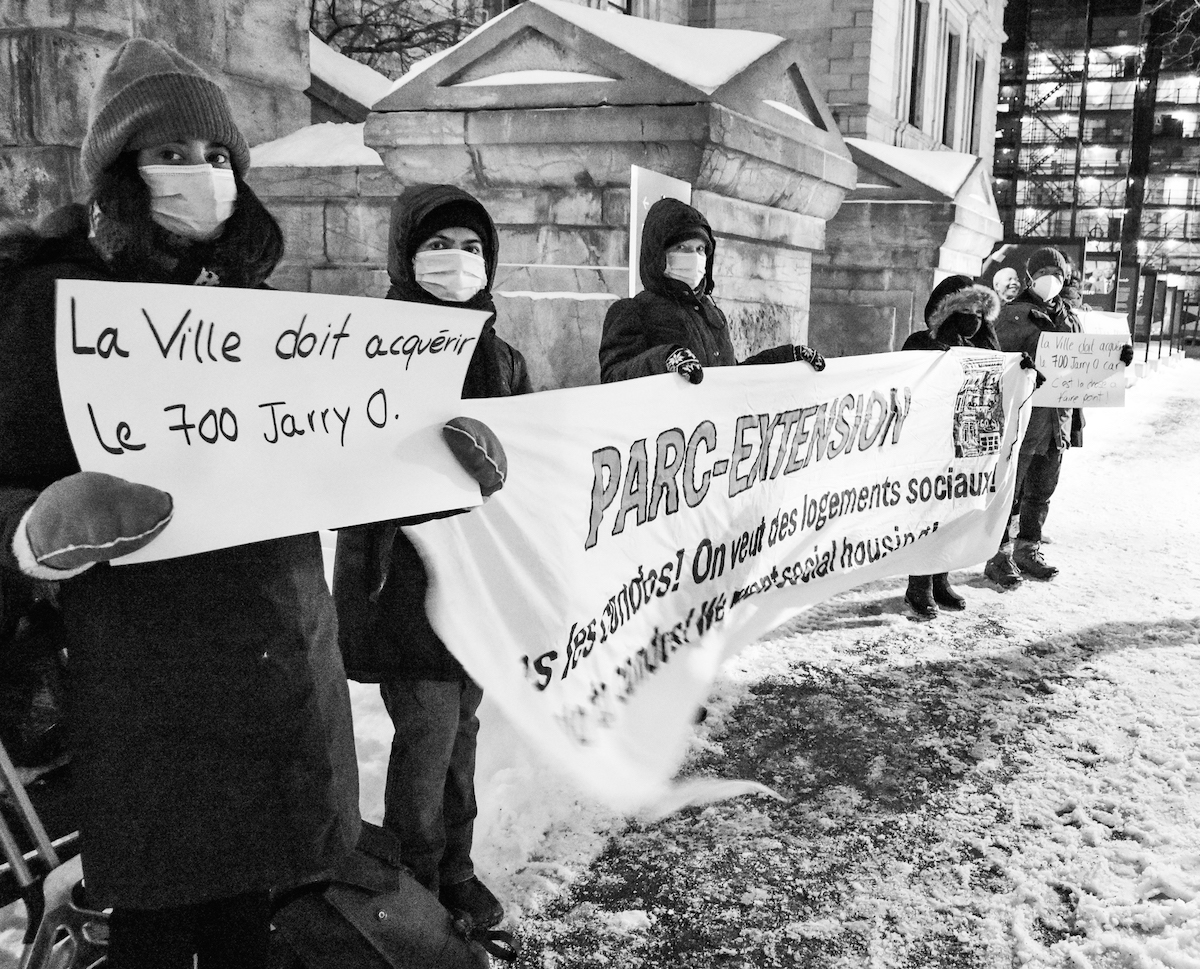Comité d’action Park-Extension members and tenants rally outside Montreal city hall to ask the city to purchase an available plot of land in their neighbourhood to build social housing in their community.
During a Montreal city council session Monday evening, Park Extension residents gathered outside city hall demanding the city and their borough to purchase a plot of land located on 700 Jarry St. W. to create social housing for community members affected by hiking rent prices and evictions.
Comité d’action Parc-Extension (CAPE) wants the city of Montreal to purchase the land to build a social housing project that will provide 50 units for people who are in need in the community.
Sohnia Karamat Ali, organizer of tenant strikes at CAPE, explained that the community houses a lot of lower-income families and tenants who have dealt with rising rent costs and a lack of affordable housing.
“In Park Extension it has been long that nothing has been added regarding social housing. Every time we demand social housing we get this excuse that there is not enough land.”
CAPE member Amy Darwish said now is the time for the city to act and provide social housing for their community. “This is a project that has been by and for tenants of Park Extension in a neighbourhood that really needs them. It couldn’t possibly be more urgent, too many of our neighbours are being displaced by rising rents and evictions.”
Organization leaders say that now is the perfect time for the city and borough to purchase the land and create a co-op social housing program. “We say that housing is a basic human right and has to be respected by the governments. Especially in Park Extension it’s mainly low-income families, either on welfare or working poor. So to bring some instant relief in their life, social housing is the response,” Karamat Ali said. According to a 2016 joint study on working poverty by Centraide of Greater Montreal and the Institut national de la recherche scientifique, 30.7 per cent of Park Extension’s population are working poor, making it not only the highest rate of working poor in the city but also one of the poorest neighbourhoods nationally.
Mohammad-Afaaq Mansour, community organizer at CAPE said that since the land has been on sale, there have been constant biddings for it.
“Last year there was almost a luxury condominium project that got built but with community support it was defeated and the borough voted against it.”
CAPE is asking that the city of Montreal uses its resources to purchase the land and create something beneficial for the community rather than have the land be used for privatized projects that can ultimately speed up gentrification in the community.
“Park Ex has always been a community that has been disadvantaged, there were always housing problems. Now we have problems related to evictions, renoviction problems, and people are getting evicted because there’s a new potential market from students and professionals from the campus,” Afaaq Mansour said, referring to Vanier College’s Park Ex campus. “That is what’s pushing out the existing tenants.”
CAPE and Park Extension tenants will continue to fight for the community and their neighbourhood that becomes more vulnerable and susceptible to gentrification. “Park Ex is going to look beautiful in 20-30 years, but there’s going to be an existing community that will be forever gone,” Afaaq Mansour said.
“That’s what we’re fighting to keep. This condo project was a smaller issue that contributes to a larger problem so we really want to have some partial victories along the way and hopefully this is a site that cannot be lost for the residents of our community.”
Photos by Gabriel Guindi
